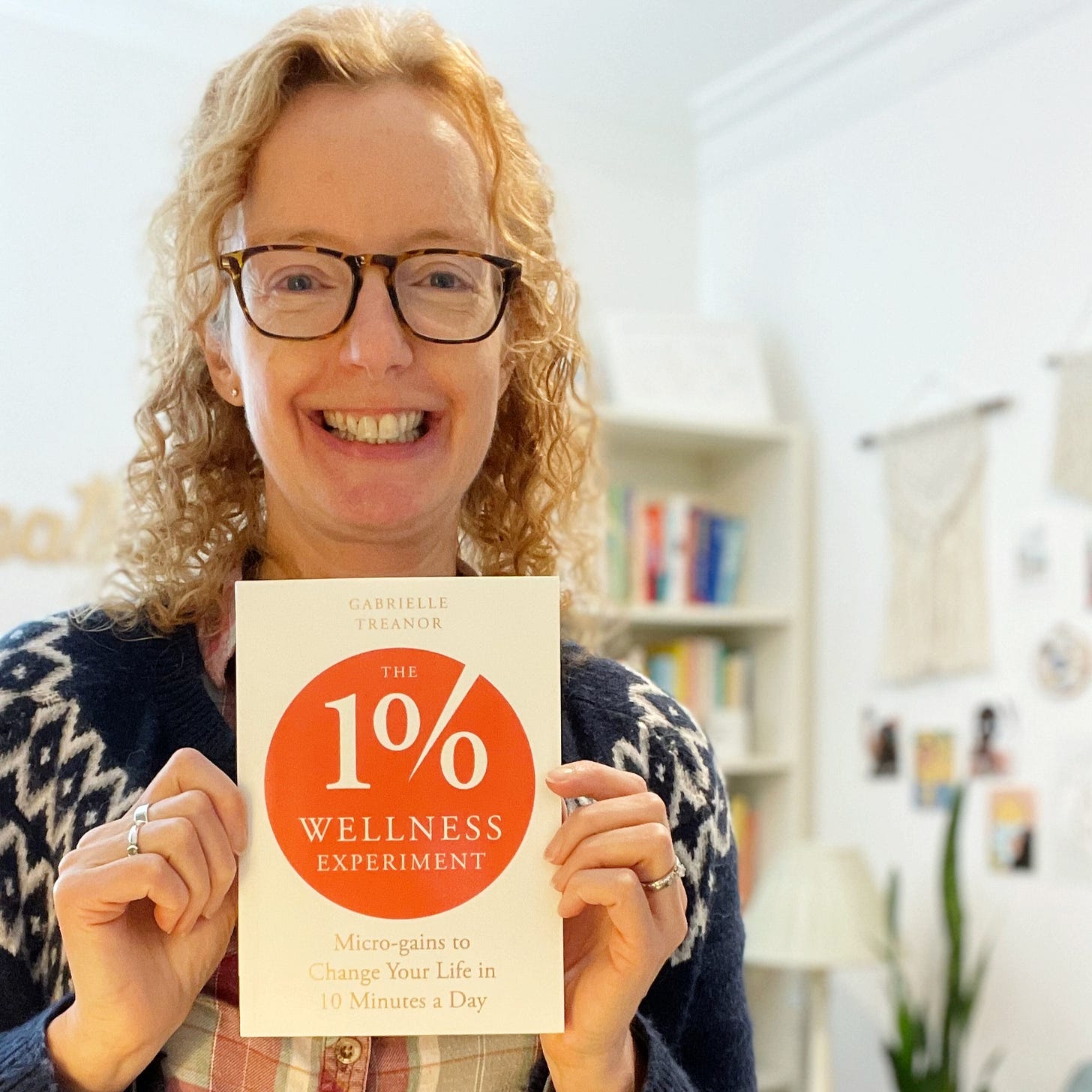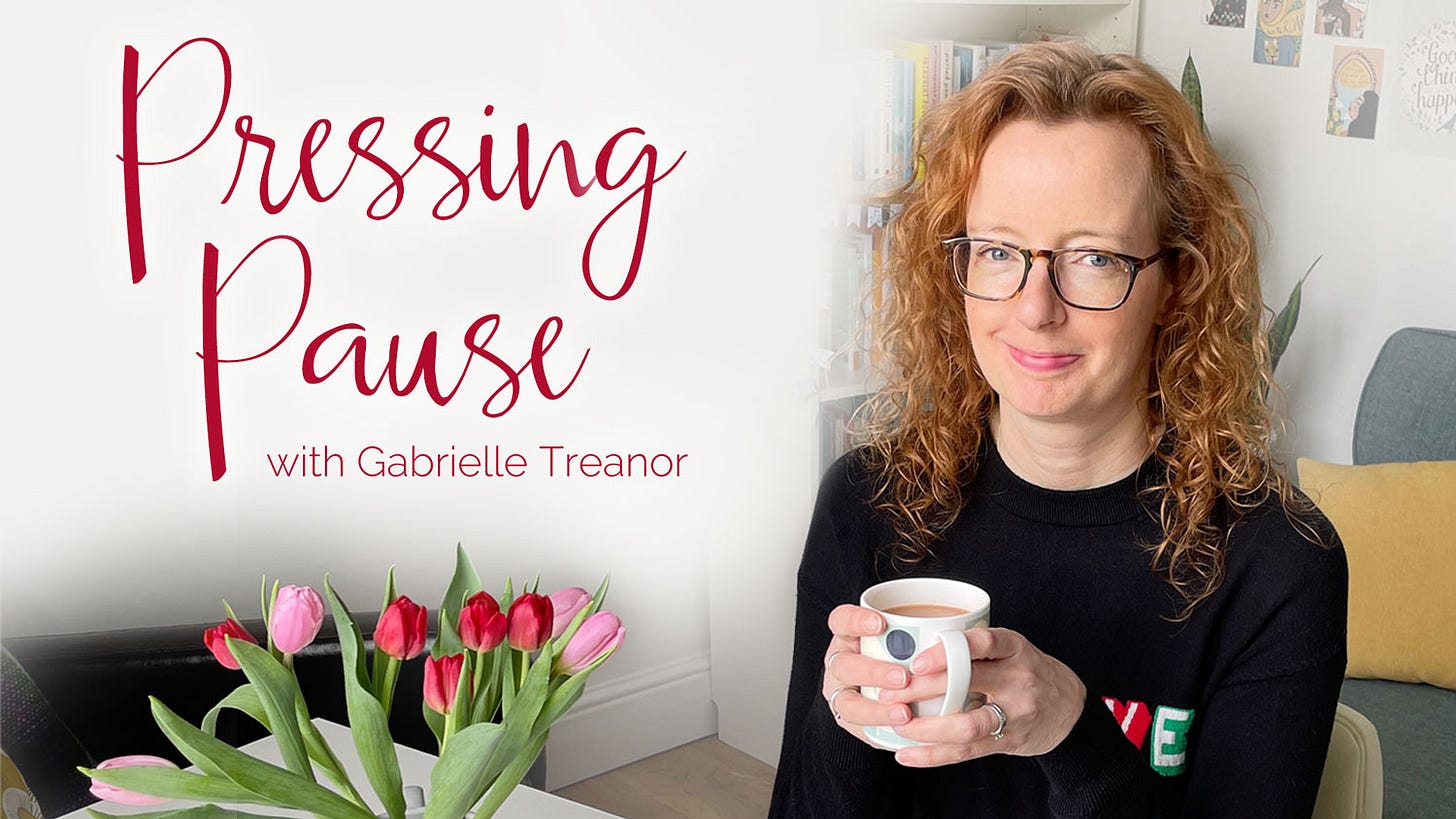
Sadly this is not my typewriter, I have three I love but none of them function.
Welcome to The Haven…
…a place for quiet, empathetic, sensitive, introverted late-(self)diagnosed ADHD women to find self-acceptance and understanding, as well as calm and joyful freedom to be their unique, beautiful selves.
With the publication of my book, The 1% Wellness Experiment, just over a month away I thought I’d share why I wrote this book.
It all started with perfectionism.
I often describe myself as a “recovering perfectionist” – it’s been a part of how I think and approach life for a loooong time and it’s something that has lessened for me as I’ve worked on it over time. Contrary to what you might think perfectionism is not simply about wanting to do things perfectly, it’s about a lot more than that.
It’s about really not wanting to get things wrong. Or make a mistake or be rubbish at something (even though it’s very likely you’re going to be when trying something new).
It’s about not wanting to mess up in front of other people or even just not be very good in front of other people. Or be judged or criticised or not meet expectations (yours or others).
And when you do fail to do things well the first time, or you look foolish or struggle with something new you go all in on the self-flagellation.
We take on perfectionism as a safety mechanism – if we only do what we’re pretty sure we’re capable of doing, we can avoid the discomfort of failure, criticism, judgement, being ridiculed and, depending on the circumstances, avoid a real threat to our personal safety. As children we learn from family, friends, school, the media how emotionally unsafe it feels to get things wrong. We believe we must meet their expectations even if we aren’t in any kind of physical danger.
With a perfectionist tendency, it makes you wary of trying new things if you’re not sure of how well it will go. So if you don’t think you’ll like something or you might struggle with it and fail, you don’t try. Procrastination is often thought of as a failing in focus or discipline when actually it often stems from perfectionism – if you don’t start the thing you can’t get it wrong, find it hard, be criticised or look daft at it.
If we do decide to be brave and have a go we put so much pressure on ourselves to do well and get it right that it sucks all the enjoyment out of whatever it is. And if we don’t ‘succeed’, by our or someone else’s definition, we see it as a personal failing and a reminder of why we shouldn’t try in the first place.
This fear of being rubbish at something new, of failing or getting it wrong, got in my way for a long time – until I looked at things differently.
What if I loosened my grip on the belief that I had to have a certain outcome and instead just experimented with having a go at this new thing? Without a specific expectation of the outcome there couldn’t be success or failure, it was just whatever happened, and so I couldn’t get it wrong.
Coming at a new task or challenge or experience from this perspective took the pressure off. It allowed me to try and learn without the belief I had to get it right from the start. I couldn’t be scared of messing up because I was just having a go, I was experimenting.
Taking this approach freed me. It allowed to try things I didn’t know I could do because it was no longer about succeeding or failing, it was about exploring, trying something out and seeing how I got on. Depending on how it went I could think about where I needed help or what I wanted to change, decide if I wanted to keep going or set aside this experiment and move on.
Releasing my tight grip on my perfectionist way of thinking and doing by treating anything I wanted (or sometimes needed) to do where I didn’t know if I was capable, if it would go well, if I would be judged or criticised, if I would mess up or look foolish, opened the door to new opportunities, new experiences (not least of which is writing a book and it being published!).
The little perfectionist voice in my head hasn’t vanished for good, it’s piped up plenty of times in the book writing process as I wrote about here. But now I can reassure her that we’re just experimenting. Having shared this approach with my coaching clients over the years, I’ve seen how powerful it is in allowing people to move past procrastination and their fears, to have a go at what they want and see what new doors open for them.
And that’s why I wanted to write The 1% Wellness Experiment. To provide you with a range of wellbeing tools, activities and habits accompanied by a different approach that allows you to take the pressure off to get things right so you can find what’s right for you.
I’ve more to say about the theory of micro gains which is woven into the philosophy of the book but I’ll save that for another time!
This photo was taken two minutes after opening the box of my book, my grin couldn’t be any bigger! Beyond thrilled to finally hold an actual copy of MY BOOK in my hands.
And it could be in your hands soon as The 1% Wellness Experiment is available to pre-order now AND there are bonuses to say thank you if you do! Click here to find worldwide online stores to pre-order from (or your local bookshop of course) and to get your bonuses. You can also read there why pre-orders are SO important to how a book is found by readers after publication. Thank you, thank you in advance.
Listen…
In the latest episode of Pressing Pause, number 131, I’m talking about how you can reclaim your time from those annoying tasks and necessities in life that make you feel irritated and resentful because of the time they take.
You can listen to Pressing Pause on iTunes, Spotify or your podcast app of choice and you can also listen (and read the transcript) here.
Until next time,






Congratulations on your book. You can get an old fashioned typewriter keyboard to link to your computer or tablet!